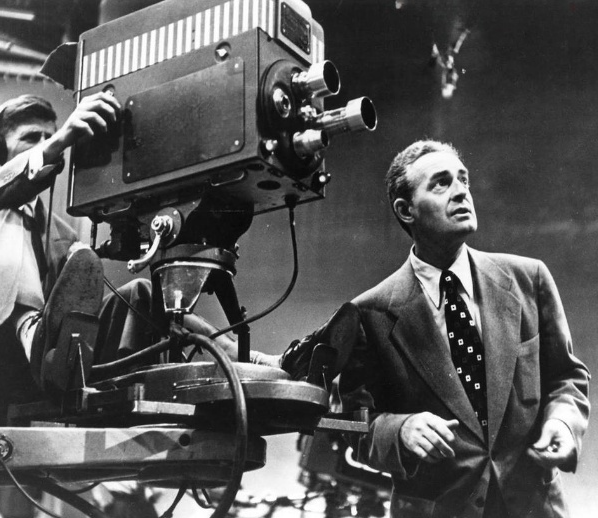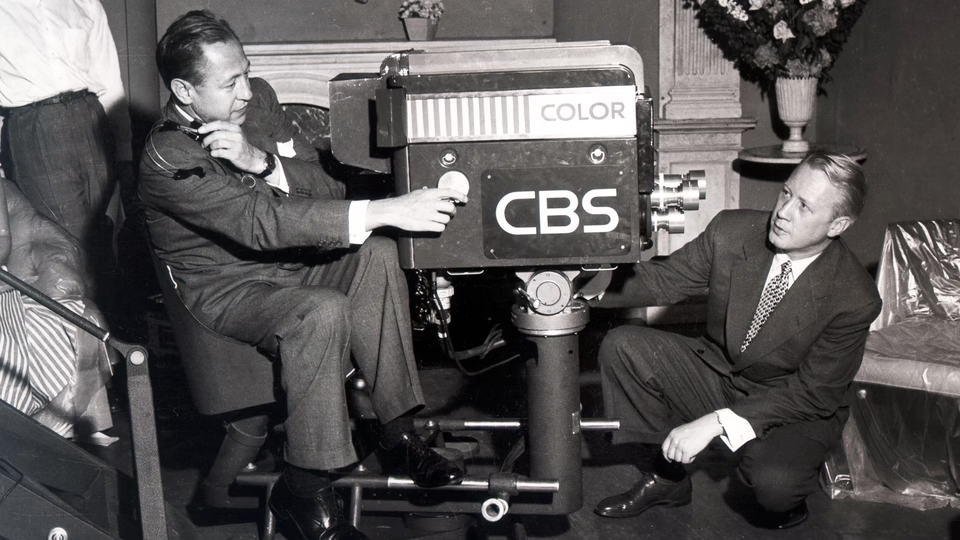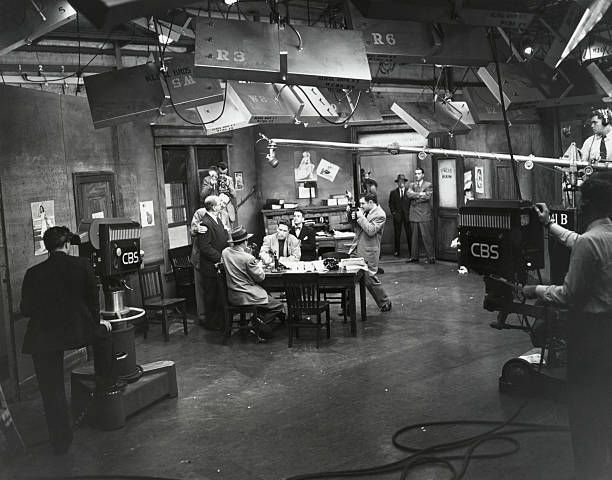The CBS Television Workshop stands as a captivating chapter in the history of American television. This experimental anthology series, airing in two distinct runs during 1952 and 1960, redefined storytelling on the small screen. Featuring future Hollywood legends like Audrey Hepburn, James Dean, Sidney Poitier, and Grace Kelly, the series showcased bold narratives and innovative performances that left an indelible mark on the medium. Let’s explore its history, notable moments, and lasting legacy in the evolution of television drama.
The 1952 Series: A Leap Into Experimental Television

The first iteration of the CBS Television Workshop aired from January to April 1952. It served as a creative playground for adapting literary works and presenting original stories within a concise 30-minute format. With writers like Ray Bradbury and directors like Sidney Lumet, the series pushed boundaries in early television storytelling.
Star-Studded Performances
The 1952 series featured an impressive lineup of emerging stars who would later become Hollywood icons. Guest appearances included Audrey Hepburn, James Dean, Sidney Poitier, Grace Kelly, Boris Karloff, and Leslie Nielsen.
The inaugural episode, a 30-minute adaptation of Don Quixote directed by Sidney Lumet, showcased Boris Karloff as the titular character and Grace Kelly as Dulcinea. This ambitious adaptation set the tone for the series, blending literary classics with innovative visual storytelling.
Critical Reception
Early reviews of the series reflected its experimental nature. While praised for its bold ideas, the show often struggled to condense rich narratives into its limited runtime. Critics noted uneven execution in some episodes, though standout installments like The Gallows Tree earned widespread acclaim for their compelling performances and direction.
The 1960 Series: Breaking Television Conventions
The CBS Television Workshop returned in 1960 with an even more daring approach to storytelling. This second run aired in two parts: January to May and October to December. Unlike its predecessor, the 1960 version leaned heavily into experimental formats, challenging traditional television norms.
Innovative Storytelling Techniques
One of the series’ most notable episodes, Afterthought, abandoned traditional acting and dialogue entirely. Instead, it used sound effects and visual cues—such as a florist’s bill and concert tickets—to convey a narrative about love and crime. This minimalist approach was groundbreaking, drawing comparisons to contemporary experimental commercials.
A Mixed Critical Response
The 1960 series received varied reviews. While its creativity was lauded, some episodes polarized audiences. For instance, the episode Flight of Fancy drew criticism for certain casting choices but earned praise for its supporting performances and inventive script. Despite its flaws, the 1960 run demonstrated the series’ commitment to pushing creative boundaries.
Nurturing Talent and Creativity

Both iterations of the CBS Television Workshop provided a platform for rising stars and showcased the potential of television as an artistic medium.
Launching Hollywood Legends
The series offered a stage for actors like Audrey Hepburn and James Dean to hone their craft before achieving stardom. Sidney Poitier’s early performance highlighted his exceptional talent, while Grace Kelly’s appearance foreshadowed her meteoric rise to fame.
Pioneering Experimental Storytelling
By exploring unconventional methods—such as silent episodes and unique visual narratives—the CBS Television Workshop inspired future television creators. Its willingness to experiment paved the way for later anthology series like The Twilight Zone and Black Mirror.
Challenges and Limitations
Despite its ambition, the CBS Television Workshop faced notable challenges that limited its success.
Time Constraints
The 30-minute format often restricted the depth of storytelling, leaving some narratives feeling rushed or incomplete. Balancing complex themes with a tight runtime was a consistent hurdle for the series.
Technical Limitations
Early television technology posed additional challenges. Live and taped performances required meticulous planning, yet directors like Sidney Lumet and Robert Stevens found creative solutions to deliver visually engaging episodes.
Why the CBS Television Workshop Still Matters

The CBS Television Workshop’s influence extends far beyond its brief run. It set a precedent for television as a platform for innovative storytelling and talent development.
A Model for Modern Anthologies
Contemporary anthology series owe much to the CBS Television Workshop. Shows like The Twilight Zone, American Horror Story, and Black Mirror continue its legacy by blending creative storytelling with compelling performances.
A Legacy of Talent
Many of the actors, writers, and directors who contributed to the CBS Television Workshop went on to shape Hollywood’s golden age. The series remains a testament to the importance of nurturing emerging talent and embracing artistic risks.
Conclusion: The CBS Television Workshop as a Bold Experiment in Television
The CBS Television Workshop may not have lasted long, but its impact on the television landscape endures. By daring to experiment with storytelling, showcase emerging talent, and challenge conventional formats, the series laid the groundwork for some of the most iconic anthology shows of the modern era.
More than just a relic of television history, the CBS Television Workshop exemplifies the power of creativity and innovation. It was a bold experiment that proved television could be a medium for thought-provoking, groundbreaking art—a legacy that continues to inspire today.


